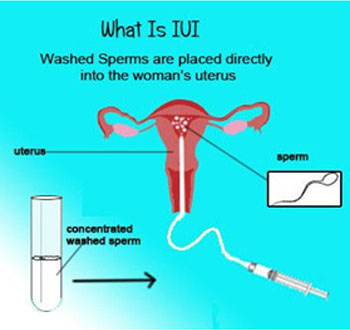Intrauterine Insemination (IUI)
IUI, or intrauterine insemination, is a relatively simple fertility treatment. It may be done with or without fertility drugs. The procedure itself involves transferring semen that has been washed and concentrated directly into the uterus via a thin catheter. IUI is done around the time of ovulation or in conjunction with fertility drugs to maximize the likelihood of conception.
IUI is used to treat many types of infertility and is often done in multiple cycles until pregnancy is achieved—or another treatment is tried.
IUI is often the first procedure tried before moving on to more invasive options, such as in-vitro fertilization (IVF).

Cycles of IUI may be recommended to treat any of the following infertility situations:
- Hostile cervical mucus
- If a sperm donor is being used
- If sexual pain makes intercourse not possible
- If treatment with fertility drugs alone is not successful
- low sperm count
- Unexplained infertility
IUI is not recommended for those with:
- Blocked fallopian tubes
- Previous pelvic infection

